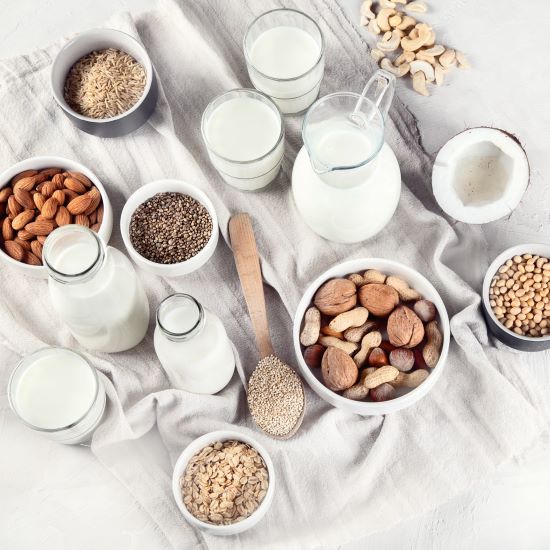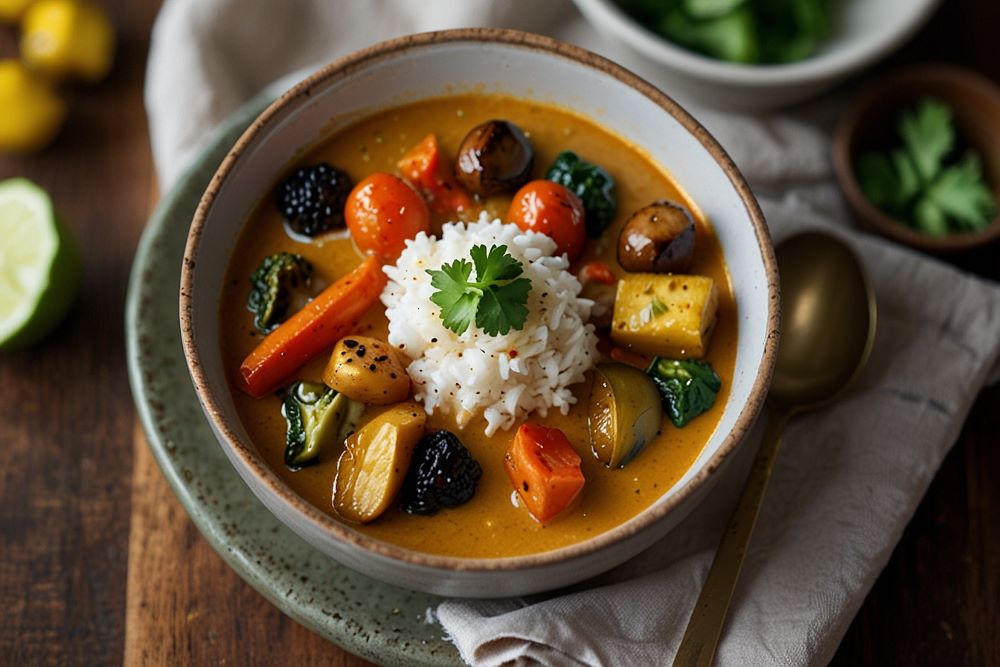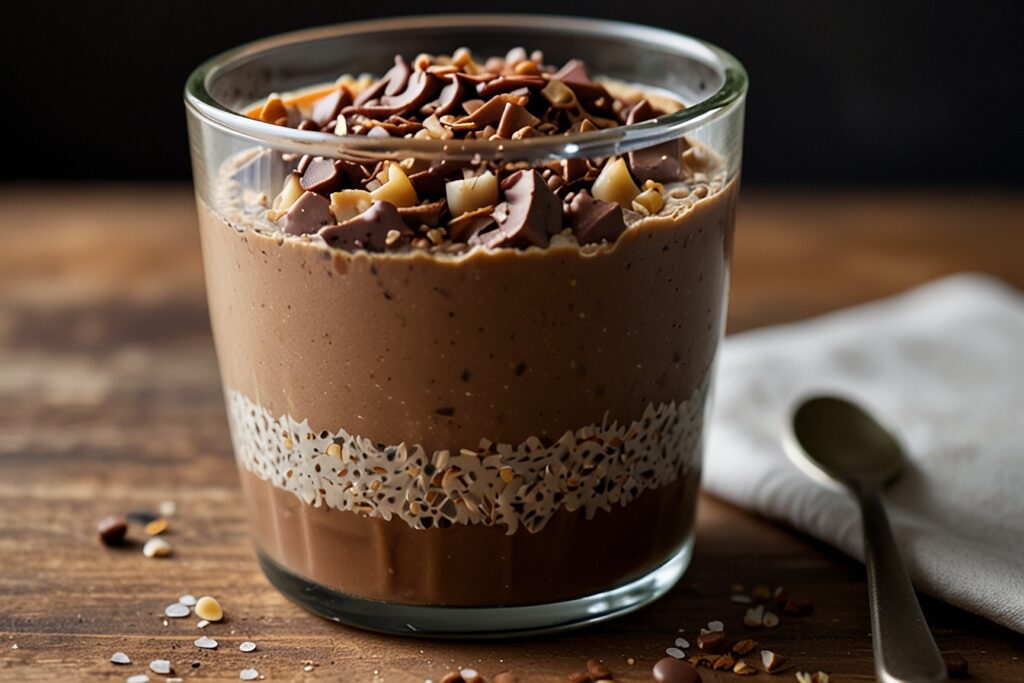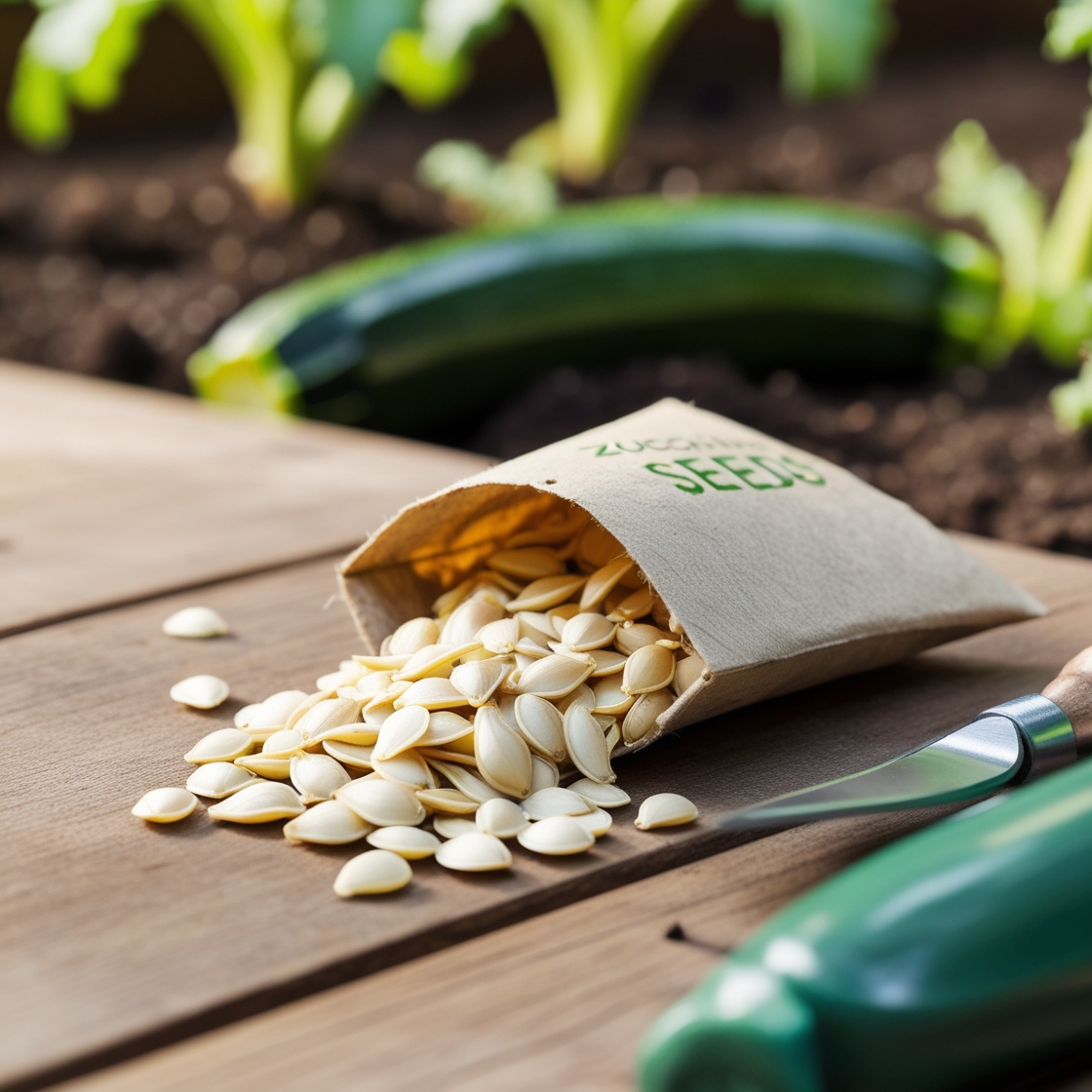My journey into the world of smoothie-making started with a simple desire to improve my health. Like many of you, I found myself standing in front of the milk section at my local grocery store, overwhelmed by the countless options available. That moment marked the beginning of my fascinating exploration into finding the perfect milk for my daily smoothies.
Let me share something personal: I struggled with digestive issues for years, and discovering the right milk for my smoothies changed everything. Through countless experiments and some memorable kitchen disasters, I’ve learned what works and what doesn’t. Now, I want to share my discoveries with you.
The Foundation of Great Smoothies
Before we explore milk options, having the right equipment is crucial. The Vitamix E310 Explorian Blender is a powerful tool for creating perfectly blended smoothies, ensuring a creamy consistency no matter which milk you choose. Its professional-grade performance can transform even the toughest ingredients into smooth, delicious drinks.
- Variable Speed Control: Ten variable speeds allow you to refine every texture with culinary precision, from the smoothest purées to the heartiest soups
- Pulse Feature: Layer coarse chops over smooth purées for heartier recipes, such as chunky salsas or thick vegetable soups
- 48-ounce Container: Ideal for blending medium batches for small family meals
- Hardened Stainless-Steel Blades: Our aircraft-grade stainless steel blades are designed to handle the toughest ingredients, so from the first blend to the last, you get the same quality results
- Self-Cleaning: With a drop of dish soap and warm water, your Vitamix machine can clean itself in 30 to 60 seconds
I learned this lesson the hard way. My first attempts at making smoothies with a cheap blender left me with chunky, inconsistent results. Investing in quality equipment transformed my smoothie-making experience.
My Morning Ritual
Each morning starts with a sacred ritual. I wake up early, before the sun rises, and head to my kitchen. The quiet moments of measuring ingredients and choosing the perfect milk for my morning blend have become a form of meditation. This practice has taught me that the right milk choice sets the tone for my entire day.
My Journey Through Plant-Based Options
Almond Milk: My Morning Favorite
I start most mornings with an almond milk-based smoothie. The light, nutty flavor brings out the best in my fruit combinations without overwhelming them. What I love most about almond milk is how it keeps my smoothies light yet satisfying.
My go-to morning recipe:
- 1 cup almond milk
- 1 banana
- Handful of spinach
- 1/2 cup mixed berries
- 1 tablespoon chia seeds
This combination energizes me for hours without feeling heavy. I noticed my skin looked better after a few weeks of drinking this regularly – an unexpected but welcome bonus!
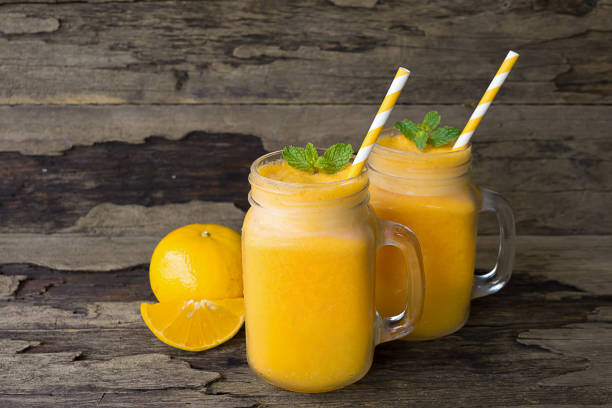
Coconut Milk: My Tropical Escape
On days when I crave something more indulgent, I reach for coconut milk. The rich, creamy texture transforms any smoothie into a luxurious treat. I discovered this by accident when I ran out of almond milk one day – now it’s a staple in my kitchen.
My tropical paradise blend:
- 1 cup coconut milk
- 1 mango
- 1/2 cup pineapple
- 1 tablespoon honey
- Small piece of ginger
This combination makes me feel like I’m on a beach vacation, even during busy workdays!
Oat Milk: My Comfort Choice
If you’re looking for the best milk alternative for your smoothies, Malk Organic Original Oat Milk is an excellent choice. This premium, organic oat milk is specially crafted to deliver a creamy, smooth texture and a deliciously nutty flavor that complements a wide variety of smoothie recipes.
- SIMPLE, ORGANIC, DELICIOUS: That’s it. Three simple ingredients: Organic Gluten-Free Oats, Filtered Water, and Himalayan Pink Salt. No seed oils. No gums. No glyphosates. This is organic shelf stable Oat Milk done the MALK way -- clean, uncompromised, and delicious.
- LONG LASTING FRESHNESS: stock up on fresh, clean flavor so you never run out. Our shelf stable Oat Milk stays pantry-perfect until opened, so you’ll always have smooth, fresh MALK on hand. No fridge? No problem.
- CERTIFIED ORGANIC. VERIFIED DELICIOUS: Some plant based milks take shortcuts. Not MALK. Our organic Original Oat Milk is crafted with ruthless integrity for a bold flavor that never compromises. When it comes to ingredients, clean always wins.
- DO MORE WITH LESS: Rich oatmilk lattes. Delicious smoothies. Tasty cereal. Fluffy pancakes. Our unsweetened Oat Milk does it all—without gums, fillers, or anything artificial. Real flavor from real ingredients in a non-dairy milk that delivers. Every. Single. Time.
- CONSCIOUSLY CLEAN WITH EVERY SIP: This is what clean tastes like. Organic Oat Milk with nothing to hide. No compromises, and nothing to question. Simple, clean, delicious—because you deserve it.
Soy Milk: My Post-Workout Partner
After intense workouts, I turn to soy milk for its protein content. To enhance the protein content of my plant-based smoothies, I add a scoop of Garden of Life Raw Organic Protein Powder. This versatile supplement works well with any plant-based milk and adds a nutritional boost to my smoothie.
- WHAT’S THE SCOOP: Build and repair muscle and reduce recovery time with 22g of organic plant based protein powder and 4g of a branched chain amino acid profile; But that’s not all—stay satiated with 1g of fiber in just 120 calories per serving
- DOWNRIGHT DELICIOUS: We’re taking a stand against chalky ; our raw protein powder unflavored is not only easy to mix and silky smooth, it's also downright delicious; Mix with water, blend in smoothies or add in to baked goods
- SHAKE IT UP: Great texture and mixability all while being sugar free protein powder; Organic peas, sprouted grains, seeds, legumes plus whole food vitamins and minerals deliver nutrients you need with 1g total net carbs
- DON’T TAKE THE HEAT: Made at low temps, the lactose free protein powder is anything but ordinary; Scoop up digestive enzymes like lipase, lactase and papain plus live probiotics including probiotic Bacillus subtilis DE111 for digestion and absorption
- EXTRAORDINARY STANDARD – The dairy free protein powder is not only delicious but is supported by Third-Party Certifications- Non-GMO Project Verified, Vegan, Kosher, NSF Certified Gluten Free & NSF Contents Certified
My muscle recovery blend:
- 1 cup soy milk
- 1 banana
- 1 scoop protein powder
- 1 tablespoon peanut butter
- Handful of spinach
The Science Behind My Choices
Through my experimentation, I’ve learned that different milks affect our bodies in unique ways. Plant-based milks often contain fewer calories but might need fortification for optimal nutrition. Dairy options naturally pack more protein and calcium. Understanding these differences helped me make better choices based on my daily needs.
Seasonal Adaptations
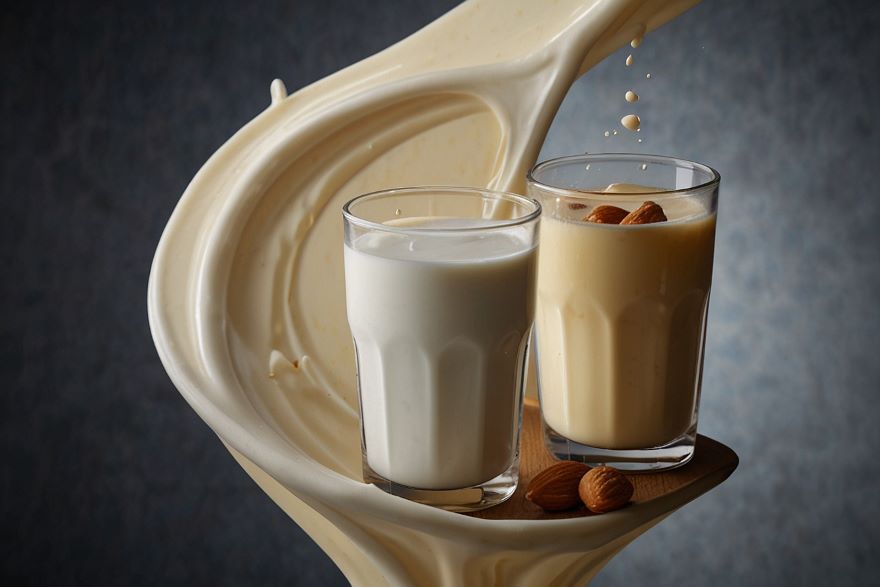
Summer Smoothie Strategies
During hot summer months, I lean toward lighter options. My perfect summer morning starts with:
- 1 cup chilled almond milk
- Frozen peaches
- Fresh mint
- Squeeze of lime
- Ice cubes
Winter Warming Blends
Cold weather calls for richer combinations. My favorite winter warmer:
- 1 cup heated oat milk (cooled to room temperature)
- Roasted pumpkin
- Maple syrup
- Nutmeg and cinnamon
- Vanilla extract
If you love plant-based milk, try out these delicious recipes
Dairy Options That Changed My Game
Traditional Cow’s Milk
My relationship with cow’s milk is complicated. I’ve learned to use it strategically, particularly in protein-rich morning blends.
My morning motivation mix:
- 1 cup whole milk
- 1 shot espresso
- 1 frozen banana
- 1 tablespoon cocoa powder
- Dash of vanilla
Goat Milk Adventures
I never expected to love goat milk in smoothies, but it surprised me. Its tangy notes add complexity to fruit combinations.
My unexpected favorite:
- 1 cup goat milk
- 1 pear
- Handful of mint
- Squeeze of honey
- Few ice cubes
Creative Combinations
Berry Blast Revolution
- 1 cup cashew milk
- Mixed frozen berries
- Dragon fruit
- Hemp seeds
- Touch of agave
Green Goddess Glory
- 1 cup hemp milk
- Spinach
- Kale
- Green apple
- Cucumber
- Mint leaves
Chocolate Dream
- 1 cup macadamia milk
- Raw cacao
- Frozen banana
- Dates
- Maca powder

Learning Through Trial and Error
My smoothie journey hasn’t been without mishaps. I once tried to make a green smoothie with warm milk – it curdled instantly. Another time, I added too much protein powder to my soy milk smoothie and ended up with something resembling cement.
These failures taught me valuable lessons about temperature, timing, and proportions. Now I know to:
- Always use cold or room temperature milk
- Add milk gradually to control consistency
- Match milk type to other ingredients
How Different Milks Changed My Life
The right milk choice doesn’t just affect taste – it impacts energy levels, digestion, and overall satisfaction. I noticed my afternoon energy slumps disappeared when I switched to lighter milk options for my lunch smoothies.
Mindful Smoothie Making
I’ve turned smoothie making into a mindful practice. Each morning, I take time to:
- Feel the textures of different ingredients
- Notice the colors changing as I blend
- Appreciate the aromas
- Listen to the blender’s changing sounds
- Practice gratitude for nourishing ingredients
Social Smoothie Experiences
My smoothie passion has become social. I host monthly smoothie parties where friends bring their favorite milk alternatives. These gatherings have taught me new combinations and helped build a community around healthy living.
Budget-Friendly Strategies
Making different milk-based smoothies doesn’t have to break the bank. I’ve developed several money-saving approaches:
- Buying seasonal fruits in bulk and freezing
- Making homemade nut milks
- Growing my own herbs
- Shopping at local farmers markets
- Joining bulk-buying groups
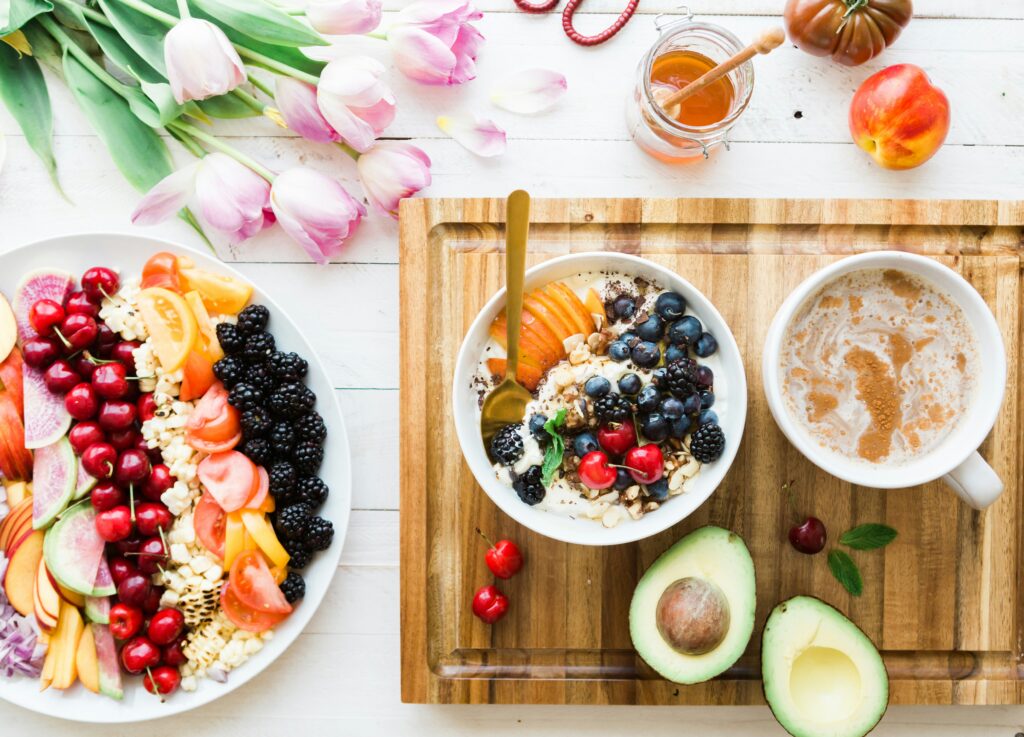
Traveling with Smoothies
Even when traveling, I maintain my smoothie habit. I pack:
- Shelf-stable milk alternatives
- Protein powder portions
- Dried fruits
- Travel blender
- Collapsible cups
Celebrating Small Victories
Every successful smoothie combination feels like a win. I keep a “smoothie diary,” noting which milk worked best with different ingredients. This practice helped me develop intuition about flavors and textures.
Adapting to Different Needs
My smoothie preferences change with:
- Seasons
- Activity levels
- Mood
- Time of day
- Health goals
- Social situations
Overcoming Common Challenges
Price concerns initially held me back from experimenting with different milks. I solved this by:
- Buying in bulk when on sale
- Making my own nut milk
- Freezing portions for later use
- Mixing different milk types
Health Transformations
Since starting my smoothie journey, I’ve experienced:
- Better digestion
- Increased energy
- Improved skin
- Better sleep
- Stronger immune system
- More consistent moods
Final Thoughts
My exploration of milk options for smoothies has evolved into more than just finding the right ingredient – it’s become a journey of self-discovery and health awareness. Each type of milk opens up new possibilities for creating delicious, nutritious smoothies that fit my lifestyle.
The perfect smoothie isn’t about following strict rules – it’s about listening to your body and discovering what makes you feel your best. Some days that might mean a light almond milk blend, other days a rich coconut milk creation.
I’ve learned that smoothie-making is both an art and a science. The science comes from understanding nutritional values and combinations. The art lies in creating blends that nourish both body and soul.
Remember that your smoothie journey is unique to you. What works for one person might not work for another, and that’s perfectly fine. The joy is in the discovery process, in trying new combinations, and in finding what makes your body sing.
Keep mixing, keep tasting, and most importantly, keep enjoying the process. Your perfect smoothie combination is out there waiting to be discovered, and the journey to finding it is just as rewarding as the destination.
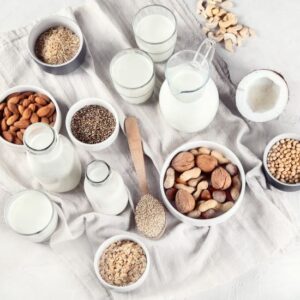
*We may earn a commission for purchases made using our links. Please see our disclosure to learn more.

